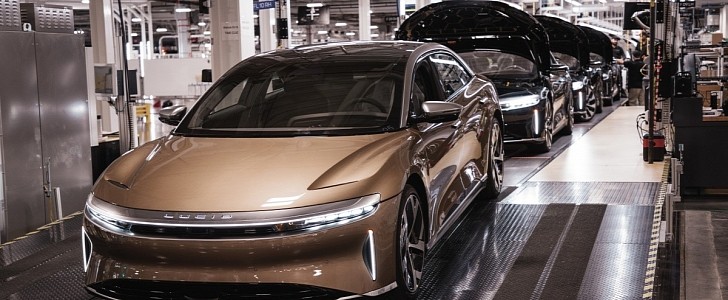Electric vehicles have gained traction in the market lately, but they’re still a novel piece of technology. With few models available and inexperienced carmakers, it’s no wonder reliability has come into question. The latest Consumer Reports shows EVs have significantly higher problem rates compared to their ICE counterparts.
The few EV models we have today are either produced by startups that have never manufactured vehicles before (like Tesla, Lucid or Rivian) or by traditional carmakers that have only recently developed their first EVs. Either way, being unfamiliar with car manufacturing or the EVs’ particularities makes it easy to lose sight of important features that affect quality and reliability. This is why Consumer Reports pointed out EVs have more problems than internal combustion vehicles.
According to the report, EVs have high problem rates in areas like in-car electronics, noises and leaks, power equipment, climate system, body hardware, drive system, and paint and trim. The Evs’ reputation is mainly tarnished by Chevrolet Bolt’s predisposition to catching fire or Tesla's notorious quality control issues. Nevertheless, there are also minor problems that speak against EVs’ reliability.
For instance, the display screen going blank in the 2019 Audi e-tron counts as an “in-car electronics” failure, while the problems with the exterior door lights on the same model is a “power equipment” issue. Tesla models have many problems, from the loose trim and mismatch paint on the 2020 Model Y to the peculiar Model X falcon doors and their sealing problems.
Eventually, all these problems come from the manufacturer not understanding all the aspects that contribute to a car’s reliability. For an EV maker like Tesla, this means coming to terms with building vehicles in the first place, and doing this in high volume and reliably. For the more traditional carmakers, this means understanding the particularities of an EV, software best practices, and key problems in areas that are unfamiliar to them, being exclusive to electric vehicles.
It is not only a teething problem for the automobile industry but also a matter of perception. It might be that EV buyers are more tech-savvy and have higher expectations when it comes to infotainment systems and other software-related areas. At the same time, those accustomed to the fine craftsmanship in traditional cars expect the same quality level in an electric vehicle.
The good thing is the 2021 model year cars show much better reliability overall. This is true for both electric and combustion engine vehicles. Even so, EVs are still deemed less reliable than their ICE counterparts.
According to the report, EVs have high problem rates in areas like in-car electronics, noises and leaks, power equipment, climate system, body hardware, drive system, and paint and trim. The Evs’ reputation is mainly tarnished by Chevrolet Bolt’s predisposition to catching fire or Tesla's notorious quality control issues. Nevertheless, there are also minor problems that speak against EVs’ reliability.
For instance, the display screen going blank in the 2019 Audi e-tron counts as an “in-car electronics” failure, while the problems with the exterior door lights on the same model is a “power equipment” issue. Tesla models have many problems, from the loose trim and mismatch paint on the 2020 Model Y to the peculiar Model X falcon doors and their sealing problems.
Eventually, all these problems come from the manufacturer not understanding all the aspects that contribute to a car’s reliability. For an EV maker like Tesla, this means coming to terms with building vehicles in the first place, and doing this in high volume and reliably. For the more traditional carmakers, this means understanding the particularities of an EV, software best practices, and key problems in areas that are unfamiliar to them, being exclusive to electric vehicles.
It is not only a teething problem for the automobile industry but also a matter of perception. It might be that EV buyers are more tech-savvy and have higher expectations when it comes to infotainment systems and other software-related areas. At the same time, those accustomed to the fine craftsmanship in traditional cars expect the same quality level in an electric vehicle.
The good thing is the 2021 model year cars show much better reliability overall. This is true for both electric and combustion engine vehicles. Even so, EVs are still deemed less reliable than their ICE counterparts.






